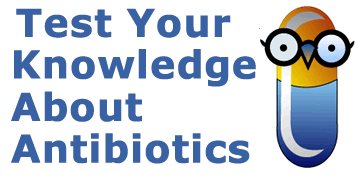Web Tools
On this Page
Web tools include buttons and badges that you can add to your website to promote appropriate antibiotic prescribing, the Get Smart: Know When Antibiotics Work program, and Get Smart About Antibiotics Week. You can also send e-cards to family, friends, and colleagues to encourage them to learn more about when antibiotics work. The web feature stories provide information about getting symptom relief when antibiotics are not needed to treat an illness.
Buttons
Get Smart: Know When Antibiotics Work
Target Audience: General public and parents of young children
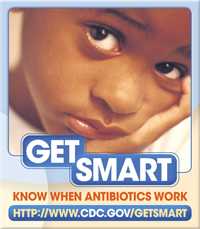
Copy the code below to place this web button, which links to the Get Smart Home page, on your website:
Size: 200x229
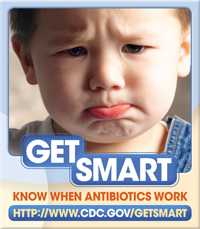
Copy the code below to place this web button, which links to the Get Smart Home page, on your website:
Size: 200x229
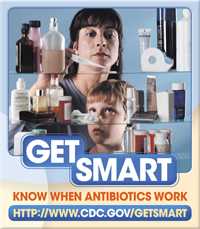
Copy the code below to place this web button, which links to the Get Smart Home page, on your website:
Size: 200x229
Health-e-Cards
CDC has three Health-e-Cards that promote wise antibiotic prescribing and use. Select a CDC Health-e-Card below, type in an email address and name, and send a colorful greeting to your friends, family, and co-workers.
Antibiotic Use
Target Audience: Parents of young children
Antibiotics: Will they work when you really need them?
Antibiotics don’t fight viral infections like colds and flu. So please work with your child’s healthcare provider to find the best treatment for your sick child.
No Antibiotics Please
Target Audience: Parents of young children
Antibiotics: Will they work when you really need them?
Antibiotics don’t fight viral infections like colds and flu. So please work with your child’s healthcare provider to find the best treatment for your sick child.
Prevent Resistance
Target Audience: Health care professionals
The power to prevent antimicrobial resistance is in your hands. No antibiotics for viral infections.
This is a reminder that it is important to know when antibiotics are indicated for upper respiratory infections (URIs) and to avoid prescribing antibiotics for most URIs, since they are usually caused by viruses. It is also important to identify and validate patient concerns related to URIs and to recommend symptomatic therapy. Get Smart About Antibiotics.
Program Badges
You can use the following badges to promote the Get Smart and Get Smart About Antibiotics Week on your website.
Get Smart Program Badge
Target Audience: General public
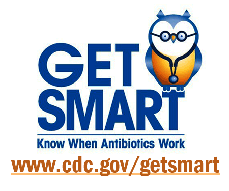
Download or print this graphic (72 dpi resolution)
Copy the code below to place the Get Smart program icon, which links to the Get Smart home page, on your website:
Size: 450x375
Get Smart About Antibiotics Week Badge with Dates
Target Audience: General public
Sizes: (450x375), (300x250)
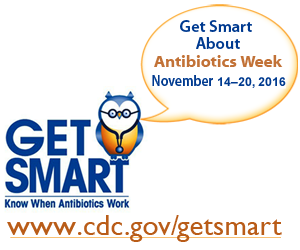
Copy the code to place this web button, which links to the Get Smart About Antibiotics Week, on your website:
Get Smart About Antibiotics Week Badge without Dates
Target Audience: General public
Sizes: (450x260), (300x175), (216x126), (120x70)
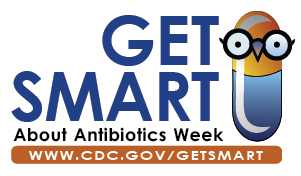
Copy the code to place this web button, which links to the Get Smart About Antibiotics Week, on your website:
Web Feature Stories
CDC’s web feature stories provide information about key health topics and feature strong call-to-action messages. You can use CDC’s free Web Content Syndication service to syndicate these stories directly on your website. Syndicated content allows you to add CDC.gov content to your own website without having to maintain or update it.
Antibiotics Aren't Always the Answer
Target Audience: General public and parents of young children
This feature story explains how antibiotics do not fight infections caused by viruses and suggests symptom relief may be the best treatment option for viral infections.
- Page last reviewed: September 2, 2016
- Page last updated: September 2, 2016
- Content source:


 ShareCompartir
ShareCompartir
